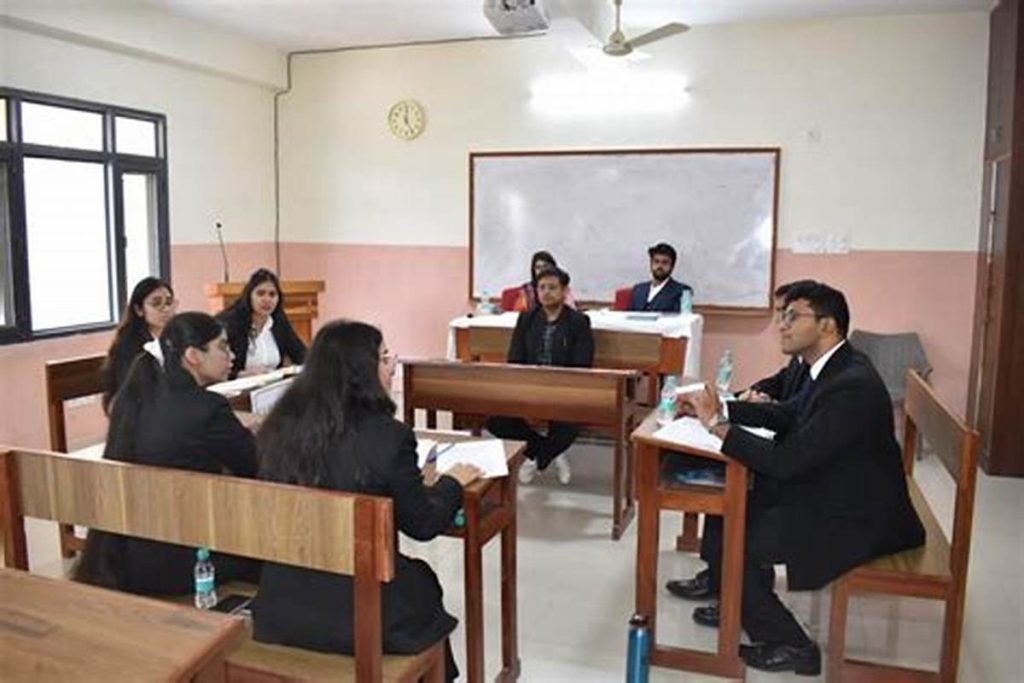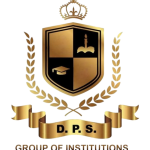About Course
DPS Group of Institutions offers a comprehensive LLB (Bachelor of Laws) program designed to equip students with a strong foundation in legal principles, practices, and ethics. The course focuses on producing skilled legal professionals who can contribute effectively to the legal profession and society at large.
Program Details
- Course Name: Bachelor of Laws (LLB)
- Duration: 3 years (for graduates from any stream)
- Eligibility: Completion of a Bachelor’s degree (B.A., B.Sc., B.Com., etc.) with a minimum qualifying percentage as specified by the institution.
Course Structure
The LLB program is structured to cover a broad range of subjects within law, combined with practical training and exposure to the legal system. The curriculum is divided into six semesters over three years, with a focus on both theoretical and practical aspects of law.
Core Subjects
The course covers a wide array of legal disciplines, including:
- Constitutional Law
- Criminal Law
- Civil Law
- Corporate Law
- Labour Law
- Intellectual Property Law
- Family Law
- Administrative Law
- Environmental Law
- Jurisprudence
- Law of Contracts
- Property Law
- Human Rights Law
Practical Training
The LLB program at DPS Group of Institutions integrates practical legal training through:
- Moot Courts: Students participate in moot court sessions to simulate real-world court proceedings, improving their legal reasoning, argumentation, and presentation skills.
- Internships: Students are required to undertake internships with law firms, corporate legal departments, NGOs, or legal aid cells, providing hands-on experience in legal practice.
- Court Visits: Regular court visits allow students to observe live cases and legal proceedings in various courts, such as district courts, high courts, and the Supreme Court.
- Legal Aid Programs: The institution encourages participation in legal aid and pro bono services, where students assist in providing legal help to underprivileged sections of society.
Faculty and Learning Approach
- Expert Faculty: The LLB course is taught by experienced legal professionals and academicians who bring practical insights and theoretical knowledge to the classroom.
- Interactive Pedagogy: The course emphasizes interactive learning through case studies, group discussions, debates, and workshops.
- Guest Lectures: Legal experts and practicing advocates are invited regularly to conduct guest lectures on current legal issues, landmark cases, and emerging trends in law.
Facilities and Resources
- Library: The institution provides access to a well-stocked library with a wide range of law books, journals, case reports, and online legal databases like SCC Online and Manupatra.
- Moot Court Rooms: Dedicated moot court rooms allow students to practice and improve their litigation skills in a simulated environment.
- Legal Research Center: The institution encourages research in various fields of law and provides resources for students to engage in legal research projects.
Admission Criteria
- Eligibility: Candidates must hold a Bachelor’s degree from a recognized university with a minimum percentage, as per the institution’s requirements.
- Entrance Exam: Admission may be based on the performance in a national or state-level law entrance exam, followed by counseling sessions.
Career Opportunities
Upon completion of the LLB program, graduates have diverse career options in the legal field:
- Legal Practice: Graduates can practice law in courts as advocates, representing clients in civil and criminal cases.
- Corporate Law: Legal roles in corporate houses, including compliance, contract negotiation, mergers and acquisitions, and corporate governance.
- Judiciary: Graduates can appear for judicial services exams to become judges at district or state levels.
- Legal Advisors: Serving as legal consultants or advisors for government organizations, businesses, or NGOs.
- Public Prosecutors and Defense Attorneys: Roles in the public sector, representing the government in criminal cases or defending the accused.
- Legal Research and Academia: Graduates can pursue legal research or become law professors and contribute to legal education.
- Civil Services: Many LLB graduates pursue careers in civil services, leveraging their legal expertise in roles like IAS, IPS, or IRS officers.
Higher Education Opportunities
- LLM (Master of Laws): Graduates can specialize in areas like corporate law, international law, criminal law, or human rights law by pursuing an LLM.
- Judicial Services Exam: Graduates can appear for the Judicial Services Examination to join the judiciary.
- Ph.D. in Law: For those interested in research and academics, pursuing a Ph.D. in law can open opportunities in teaching and legal research.
The LLB program at DPS Group of Institutions offers a well-rounded legal education with an emphasis on both theoretical knowledge and practical legal skills. The course prepares students to excel in various legal careers, from practicing law to corporate legal roles, the judiciary, and beyond. With experienced faculty, hands-on training, and a focus on ethics and social responsibility, DPS Group of Institutions aims to nurture the next generation of legal professionals who will contribute to the justice system and uphold the rule of law.



